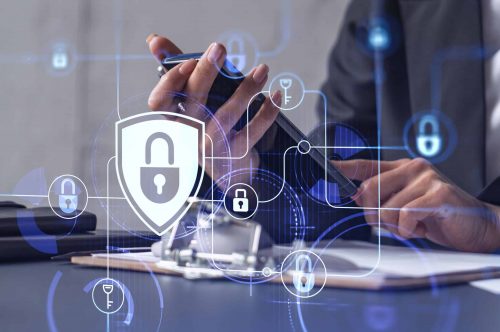Did you know? Broadnet invests in understanding regulations and ensuring we have a seat at the table when considerations that could impact our platform are being made.

Our work on STIR/SHAKEN allows for greater trust across carriers, improved caller reputation scoring, and successful navigation of phone networks. STIR/SHAKEN framework is intended to stop fraudulent robocalls, which Broadnet’s platform has never allowed or supported.
What is STIR/SHAKEN and how does it help safeguard against spam calls?
STIR/SHAKEN are acronyms for:
Secure Telephone Identity Revisited (STIR)
Signature-based Handling of Asserted Information Using toKENs (SHAKEN)
Phone calls traveling through interconnected phone networks can have their caller ID “signed” as legitimate by originating carriers and validated by other carriers before reaching consumers. STIR/SHAKEN digitally validates the handoff of phone calls passing through the complex web of networks, allowing the phone company of the consumer receiving the call to verify that a caller has authorization to use the number displayed on the Caller ID. You can read more on the FCC website here.
Basically, the originating carrier attests that it has a relationship with the originator of the call. STIR/SHAKEN helps ensure that the call information you see on your phone is accurate. If originating carriers violate STIR/SHAKEN and allow illegal calls to transmit from their network, they can have their tokens (see acronym description above) taken away. The primary objective of this authentication is to enable regulatory agencies such as the FCC to trace the calls back to their originating organization.
It’s like a digital seal of authenticity from the originating carrier, helping you trust that the person calling you is who they say they are. Or, in the case of Broadnet, we are attesting that your audience members can trust that it’s YOU who is calling them.
Attestation Levels
STIR/SHAKEN attestation levels determine the level of trust for verifying the authenticity of phone calls. These levels help people decide how much they can trust the caller ID information displayed on their phone when they receive a call. The organization transmitting calls on behalf of the maker of the call (in this case, Broadnet) “attests” that they have a relationship with the maker and authorizes the use of the number.

Attestation A/Full Attestation: The highest level of trust. Attestation A means the phone carrier has verified that the caller ID information has not been tampered with and the call is genuinely coming from the organization it claims to be from. It also means that the phone number they are calling from has not been blocked by carriers, giving them the highest deliverability.
Broadnet will only sign Custom Caller IDs provided by Broadnet as Attestation A.
Attestation B/Partial Attestation: The call origination has been authenticated; however, the maker of the call cannot be verified as authorized to use the calling number.
If you choose to not use Broadnet’s free Custom Caller ID, it will result in Attestation B because we cannot verify that you have been authorized to use the calling number. This may result in lower deliverability rates.
Attestation C/Gateway Attestation: The carrier cannot authenticate the call source, which means the call will be flagged or marked as spam.
Anything less than an Attestation A could result in your calls being marked as spam and not reaching your audience.

We offer free Custom Caller IDs to our clients which are regularly checked for integrity, attestation, and authentication. These numbers are marked as Attestation A, which means high deliverability rates for all your Broadnet broadcasts.


